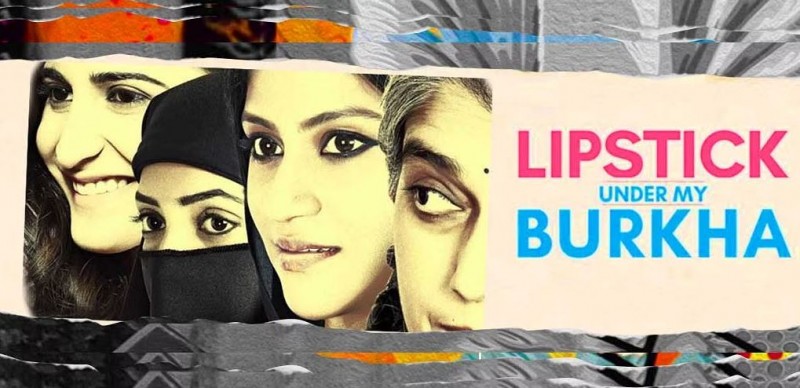
A cinematic masterpiece that defied social expectations and sparked discussions about female empowerment, freedom, and sexuality emerged in 2016 at the Tokyo International Film Festival. The film "Lipstick Under My Burkha" won the coveted Spirit of Asia Award and made an impression on viewers all over the world. The film, which was directed by Alankrita Shrivastava and was made by Prakash Jha, tells an engrossing story about the lives of four women from very different backgrounds who are all trying to escape the social restrictions that have been placed on them.
The film "Lipstick Under My Burkha," which is set in Bhopal, India, examines the covert desires and aspirations of four women who each lead a double life concealed by their burkhas. The film introduces us to Usha Parmar (Ratna Pathak Shah), a 55-year-old widow who rediscovers her sensuality through a telephone romance, Rehana Abidi (Plabita Borthakur), a young college student rebelling against her conservative family, Leela (Aahana Kumra), a beautician trapped in a loveless engagement, and Shirin (Konkona Sen Sharma), a mother of three who secretly works as a saleswoman. While navigating the patriarchal and traditional society they live in, each character tries to make her desires, dreams, and uniqueness known.
The idea of female liberation is one of the book's major themes. "Lipstick Under My Burkha" The film deftly explores the various ways that women battle to overcome social norms—whether they be cultural, religious, or traditional—in society. The idea that many women lead lives that are very different from the ones they portray in public when they are alone is brought to light. The characters defy the expectations placed on them through their secret lives and the use of lipstick as a symbol of their hidden desires.
In the film, female sexuality and the oppression that women frequently experience are boldly addressed. Usha, for example, defies the perception that older women shouldn't have such needs by rediscovering her sexual desires. Rehana defies her strict religious family's expectations and rebels against them by exploring her sexuality, which is frowned upon there. Shirin battles to find sexual agency while contending with a neglectful husband, and Leela searches for a passionate love affair outside of her oppressive engagement.
A significant symbol is lipstick, which is used here. It serves as a means of self-expression and a form of defiance against societal norms, not just as cosmetic. In a culture where such expressions are frequently discouraged, it represents the characters' assertion of their identities and desires.
The movie offers a biting critique of the societal and cultural norms that limit the freedom of women. The movie depicts the struggles of women who dare to dream differently in India, where traditions and conservative values frequently dictate a woman's role in society. It emphasises the hypocrisy in a culture where men are given more freedom and women are expected to fit into specific roles.
These themes are expertly handled by the director Alankrita Shrivastava, who also highlights the contradictions in Indian society. Due to the universality of her storytelling, "Lipstick Under My Burkha" connects with women all over the world who face comparable difficulties.
The movie shines through its brilliant artistic and cinematic brilliance in addition to its compelling themes and narrative. The ensemble cast's performances are nothing short of extraordinary, and the direction is thought-provoking. The cinematography perfectly captures the spirit of Bhopal. The portrayals of their respective characters by Ratna Pathak Shah, Konkona Sen Sharma, Aahana Kumra, and Plabita Borthakur are compelling, and they successfully elicit a strong sense of sympathy from the audience.
The recognition of receiving The Spirit of Asia Award at the 2016 Tokyo International Film Festival was proof of the movie's universal appeal and capacity to strike a chord with viewers everywhere. It signalled a turning point in Indian cinema by demonstrating that films that question social mores and amplify the voices of women can win acclaim on a global scale.
A powerful cinematic masterpiece, "Lipstick Under My Burkha" tackles the complex issues of female liberation, sexuality, and repression while bridging cultural divides. The movie's triumph at the 2016 Tokyo International Film Festival cemented its status as a standout piece of artistic storytelling and artistry in the history of world cinema. The movie highlights the resilience and tenacity of women while also exposing the hypocrisy of a society that frequently squashes their dreams and aspirations through the journeys of its four main characters. It is evidence of how powerful film can be in provoking thought, upending expectations, and starting discussions about female empowerment and gender equality.
Partho Ghosh's Unreleased '101 Days' Emerges as a Cinematic Mystery
Tahir Raj Bhasin's Convincing Turn as a Smoker with Basil and Green Tea